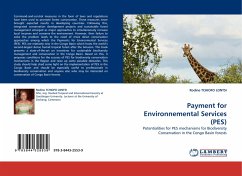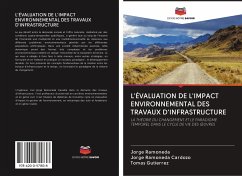
Payment for Environnemental Services (PES)
Potentialities for PES mechanisms for Biodiversity Conservation in the Congo Basin forests
Versandkostenfrei!
Versandfertig in 6-10 Tagen
32,99 €
inkl. MwSt.

PAYBACK Punkte
16 °P sammeln!
Command-and-control measures in the form of laws and regulations have been used to promote forest conservation. These measures never brought expected results in developing countries. Following this, integrated conservation development projects and sustainable forest management emerged as major approaches to simultaneously increase local incomes and conserve the environment. However, their failure to solve the problem leads to the need of more direct conservation approaches among which the Payments for Environmental Services (PES). PES are relatively new in the Congo Basin which hosts the world...
Command-and-control measures in the form of laws and regulations have been used to promote forest conservation. These measures never brought expected results in developing countries. Following this, integrated conservation development projects and sustainable forest management emerged as major approaches to simultaneously increase local incomes and conserve the environment. However, their failure to solve the problem leads to the need of more direct conservation approaches among which the Payments for Environmental Services (PES). PES are relatively new in the Congo Basin which hosts the world's second-largest dense humid tropical forest after the Amazon. This book presents a state-of-the-art on incentives for sustainable biodiversity management and conservation in the Congo Basin. Based on this, it proposes conditions for the success of PES for biodiversity conservation mechanisms in the Region and raise up some possible obstacles. This study should help shed some light on the implementation of PES in the Congo Basin and should be especially useful to professionals in biodiversity conservation and anyone else who may be interested on conservation of Congo Basin forests.












